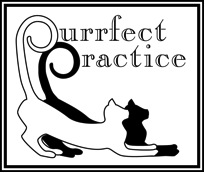Charles Dickens
Charles Dickens Bio
26/07/20 08:24 Filed in: Books
I have always been a Charles Dickens fan as an author. In high school, we had to pick an author to read three of their books and then write a report. I initially picked Ernest Hemingway. This did not go over well since for some reason Hemingway and I were not simpatico. My grades in advanced English class were not doing well. I asked to switch authors and given the OK, I went with Dickens. This is where I also became a lifelong fan of A Tale of Two Cities.
It appears that based on Dickens life, he was a troubled man or trouble seemed to intrude. This article gives a synopsis of what they see as questions about his lifestyle and choices. His writings likely demonstrated much of his what was occurring. Enjoy the read and maybe we can avoid bringing on such troubles in our lives.
"The Mystery of Charles Dickens is a biography ready to take risks. Wading away from the shore – where the crowd laughs at comic turns and weeps at the pathos of orphans – AN Wilson takes six deep-sea dives in search of the monsters of the lower waters. He is after the darker things Dickens could conceive, and the question is how much of Dickens himself went into what appear distorted fantasy creatures moving about in the murk and preparing to injure others."\
It appears that based on Dickens life, he was a troubled man or trouble seemed to intrude. This article gives a synopsis of what they see as questions about his lifestyle and choices. His writings likely demonstrated much of his what was occurring. Enjoy the read and maybe we can avoid bringing on such troubles in our lives.
"The Mystery of Charles Dickens is a biography ready to take risks. Wading away from the shore – where the crowd laughs at comic turns and weeps at the pathos of orphans – AN Wilson takes six deep-sea dives in search of the monsters of the lower waters. He is after the darker things Dickens could conceive, and the question is how much of Dickens himself went into what appear distorted fantasy creatures moving about in the murk and preparing to injure others."\
Comments

